From HM by Ruth Hogan.
Exclusive: Trilogy Hotels closes first year with 13 hotels and big ambitions for 2025
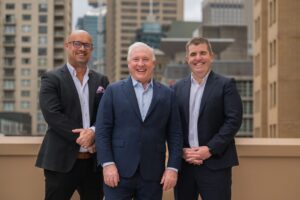
One year on from the launch of Trilogy Hotels, the independent management company is rounding out 2024 with 13 hotels under management – totalling over 2,500 rooms – and overseeing $165 million in revenue.
Headed up by Scott Boyes as CEO, Tony Ryan as Executive Chairman and Grant Alchin as Chief Operating Officer, the trio bring a collective industry experience of more than 90 years, extending across operations, commercial and legal, finance and asset management. Add to that, a growing team of experienced hotel industry leaders.
Boyes, Ryan and Alchin sat down with HM to discuss the evolution of the Australian hotel market, changing perceptions of the independent management model, and goals for the future.
Tell us about how you all came together on this. How long was this idea festering for and what made you buy the bullet?
Scott Boyes: In the post-Covid hospitality world, there was a groundswell of sentiment that was pushing everyone towards significant industry evolution. Grant and I were having conversations about the current state of our industry and spoke with people that we trusted and respected, from those conversations it became clear there was no reason why third-party/white label could not work in Australia, in fact, Australia needed it. Tony Ryan’s name came up in conversations as someone we should meet. Unbeknownst to us, Tony was having those same conversations. That initial meeting with Tony started a whole new conversation, Grant and I had an idea and intent, but we didn’t have the means. Tony brought the missing link – the means, along with experience and knowing what it took to set up a company and how to document the amazing journey of Trilogy Hotels.
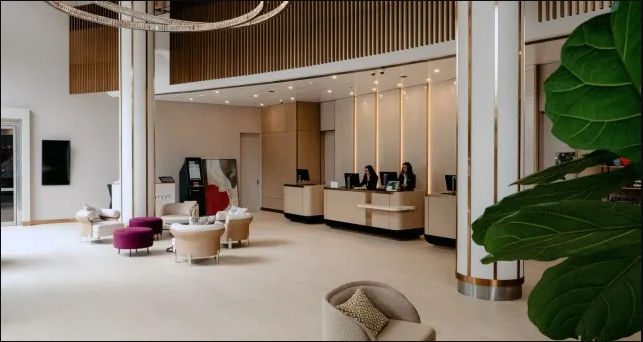
Tony Ryan: I was working in London prior to Covid selling branded management companies and was then approached by some third-party management companies looking to expand into Europe and the UK. With that, I had good exposure to the third-party model and how it works. With Covid, I ended up coming back to Australia, and I was exploring third-party management as a business proposition in Australia separately when I was introduced to these guys.
Grant Alchin: We were all coming from three different angles. I was working on the investor side and getting quite frustrated with the relationship between an investor and an operator. I don’t think anyone’s completely happy with the way it’s all working as a framework.
What were those frustrations or the pain points that you were seeing?
Grant Alchin: I think it’s about alignment. If you’re in a company that’s running a branded environment, there’s certain alignment through the hotel management agreement (HMA) but there’s also potential misalignment in terms of what you’re trying to achieve and what the owner is trying to achieve. As an example, during an operator selection for a hotel, the owner has a clear idea in their mind of what they are prepared to spend on a refurbishment and what they need back. Often the discussion centres around the brand, what it offers, and the investment required, but it is lacking that investor return piece. And it’s not necessarily reasonable to expect someone to add that if they don’t feel like that’s their core business. That’s where you get into a more detailed discussion about whether there’s an opportunity to make the framework itself better.
Scott Boyes: Also at that time, during and immediately post Covid, our operational capability as an industry was severely compromised, we saw a real thinning out of operational focus, capacity, and experience. With this reduction of operational resources and capability across all levels of the market, delivering operational excellence for everybody became very difficult. The hotel brands have so much to do – operations, distribution, loyalty, and procurement. We saw a real opportunity to build a company that was focused solely on operating hotels very, very well, providing a compelling reason for owners to buy a hotel and go with this model.
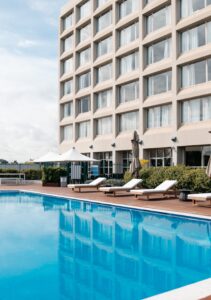
Why, in your opinion, had the third-party model not yet taken off in a big way here?
Scott Boyes: I think there are many reasons, but at the end of the day the rise of the third-party operating platform is a natural maturing of the Australian hotel market, it is not any more complex than that. Until now we’ve had a traditional model – the brand-led HMA – that served us very well for a long period of time. This is just a natural next step; we’re now meeting those sophisticated hotel markets that have gone before us. The hotel investor today is very different to that of 50 years ago. They know what they want. And they want to trust their operator to deliver the focus, intent, and ability to make it happen.
Tony Ryan: Brands have very much changed their view towards franchising as their preferred growth model. That’s a result of a whole raft of different things, but certainly, they are rewarded by the stock market in terms of moving from asset-heavy to asset-light to franchise-heavy. I think there has been a real willingness by the brands to embrace franchising. And to do so, they need either an owner-operator who would take a franchise or they need third-party managers who will respect the brand.
Let’s talk about branded versus unbranded. Are there many instances where you have a relationship with an owner to run a hotel under an independent label without the power of a big brand?
Scott Boyes: The brands are incredibly powerful and they’re great partners of ours. For hotels with complex market mixes and big room counts, third party operators with franchised brands are a wonderful solution. They position a hotel asset and provide a platform to drive a distribution strategy and revenue lines. Operating hotels is complex and multifaceted; in the franchise model, we take care of all aspects of the hotel operation providing a platform where the brand can play to what we see as their absolute strength – being the brand. They then can do what they do best being the driver of distribution, maximising customer loyalty, pushing the revenue lines – and market performance. We think and have proven with results this model provides the hotel owner with the very best of both worlds.
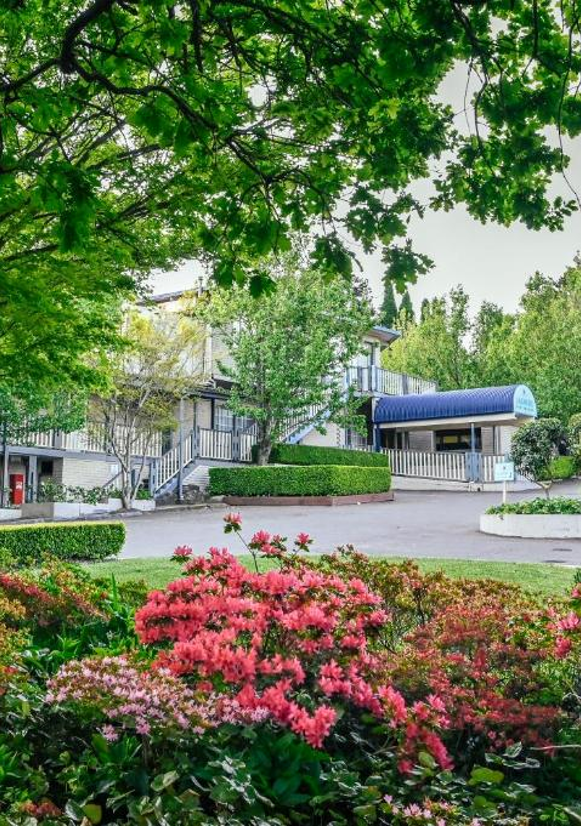
At Leura Gardens Resort, for Jerry Schwartz, we’re operating an unbranded offering to test the differences between that and a franchise hotel. Channel management partners have come a long way, and they do provide an interesting solution to distribution. In an unbranded environment, you’re relying more heavily on OTA partners, which comes at a higher cost of distribution. We’re convinced that with a bigger room number in a hotel, it would then make more sense to franchise a brand, because of that higher distribution cost.
A big part of your offering is about driving efficiencies in hotel operations. Can you explain what that looks like? Is it reducing headcount? How is technology involved?
Scott Boyes: One of the founding principles of Trilogy was a desire to show that hotels as an investment class can rival residential and commercial in most major markets. To do that, the EBITDA margin of hotels as an investment needed to move by about 10 points. It’s not about removing jobs; it’s about looking at what is required to do a particular job and managing that appropriately. For example, increasingly technology is playing a role in providing efficiency and also enhancing service. We have an absolute desire to structure a business in the most efficient way possible, our model provides the freedom and flexibility to do that. Grant is, quite frankly, a master of looking at a hotel business and maximising what is possible at the bottom line. He can look at a P&L and identify where the absolute gold is. Then our team is tasked with delivering that for owners. People have said that we’re giving away all our secrets in our pitch decks. We’re not. The strategy is often quite easy to come up with, the secret sauce is having the team to deliver it.
Grant Alchin: As an example, we would look at revenue management over the course of a week and advise removing and replacing processes that do not add value. We can negotiate large-scale contracts in the owners’ favour and save a lot of money as a result.
Scott Boyes: Ultimately, we’re looking to improve the profit, the quality of the workplace for the employee, and the guest experience. We’re looking for the hotel to be a great partner of the brand, and we’re looking to help the communities that we operate in. There’s a lot to do and a lot of people relying on us to deliver. The only way we can do that is with a degree of intimacy, focus and be removed of any other distraction.
At Mercure Sydney, the guest score is moving up. The market performance has moved up from 106 to 110; the profit has moved up by 15%, our teams seem to like what we bring, and our franchise partner also benefits from great performance. We’re really excited about what the case studies are beginning to show. It’s all just about being super deliberate in delivering our plan and then how we review and refine that plan every day, week, month, and year, as we move through the lifecycle of hotel ownership with our hotel owners.
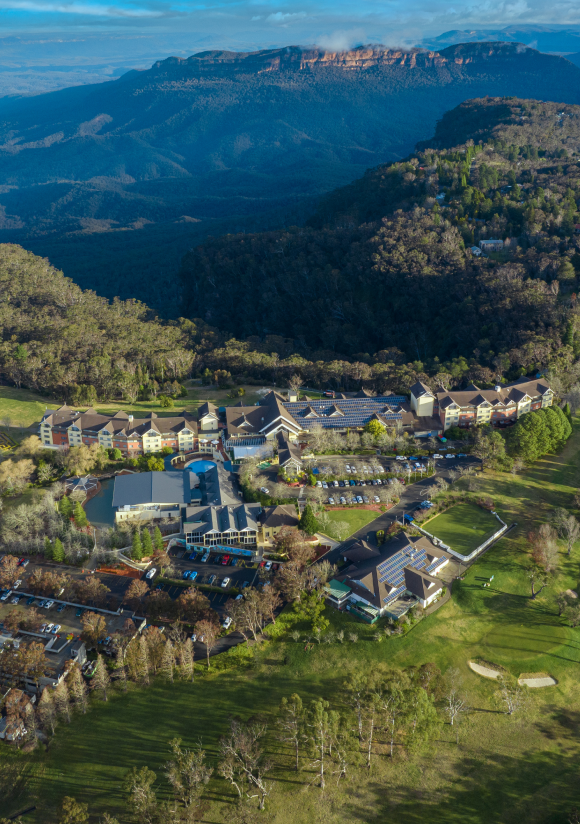
How do you think industry perception of Trilogy and of the third-party model has changed compared to a year ago?
Grant Alchin: I think the deal with Jerry Schwartz [to manage operations for Mercure Sydney, Ibis Sydney World Square, Mercure Canberra and Fairmont Resort Blue Mountains] was quite important. At that time, Mercure Sydney was the largest Mercure in the world, so to move that property from an established HMA to a franchise agreement under an independent operator – it hadn’t been done before in the market, certainly not on that scale. It showed that you can renew your branding but have a different operator. That was a signposting that this model absolutely works on a big CBD property with a large international brand. I think there was a mindset shift when that occurred.
Scott Boyes: We’ve shown the brands that we can add value. We respect the brands and the value they bring. We understand them and we feel like we can provide meaningful interactions with brands to get the best out of their platforms. The same with our owners, the owners we work with, see the value of the model. It has been far more effective than we ever thought possible because it’s so focused, so aligned and devoid of any conflicts of interest. Within a year, the mindset towards third-party operators has changed a lot. It’s gone from “can this work?” to, “how successful can it be?”.
We have been so impressed by and grateful for the support we’ve received. When we left our previous jobs, no one had any obligation to meet with us, we were just three individuals with a common dream. People were very generous with their time and advice, which helped shape our company. When we first started, we had no case studies, nothing other than a compelling business case and a conversation. Those first owners that came on board absolutely trusted us, and we will never, ever forget that – we won’t ever let them down either. It’s amazing how far we’ve all come in a relatively short period of time.
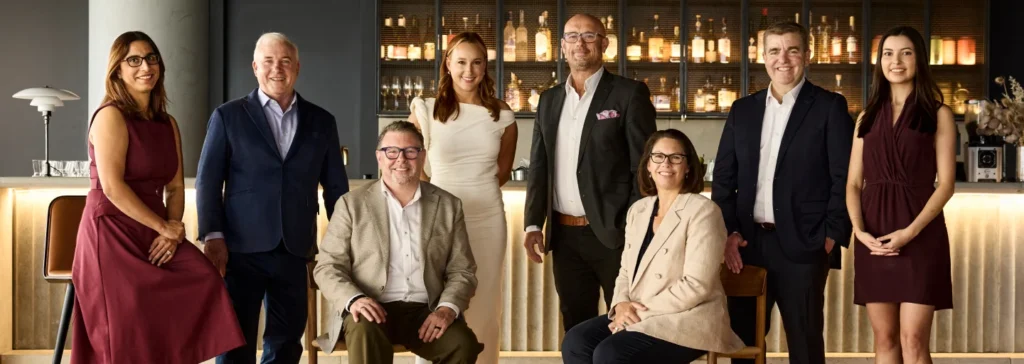
Looking back over the first year, what are you most proud of?
Grant Alchin: We’re doing this on behalf of three families. When you have to say to your wife and children that you’re going to leave your job and start a company, they have to trust that we know what we’re doing, and we’re going to do it well. I think, 12 months in, there’s a sense of relief from our families that this is not a crazy, risky venture. We’re on the right track. I think that’s probably the best thing, that we’ve repaid the initial trust at this point.
Tony Ryan: I’ve set up businesses before, law firms in Australia and Singapore. I think this one has differed in the way it was done in such a deliberate way, in terms of the people involved, the culture, values, and supports around that quality of communication. We were really careful to ensure they were foundational issues, rather than just running off and getting business. And despite being really busy, those things are still really important.
Scott Boyes: Grant and I have a passion project podcast called ‘A Room With A View’ and on a recent podcast our guest talked about leaving a company that he saw himself being with for life, to start up his own business. Afterwards, Grant and I both had people reach out to us to say how brave we were to leave those great secure jobs behind to enter a world of the unknown. At the time, I didn’t really view it as brave. I certainly thought Tony and Grant, and the people that we hired were brave, but I didn’t see myself as being brave. It was just a natural evolution of my career. But looking back, that’s the thing I’m most proud of – making that decision to do it. And I’m proud of the decision that others have made to join us as well, whether that’s owners or team members. That’s huge. I’m also very proud of how we’ve been embraced by the industry we love. It could have been very different. I’m very proud this industry can have such a big heart to support and embrace a small startup like Trilogy.
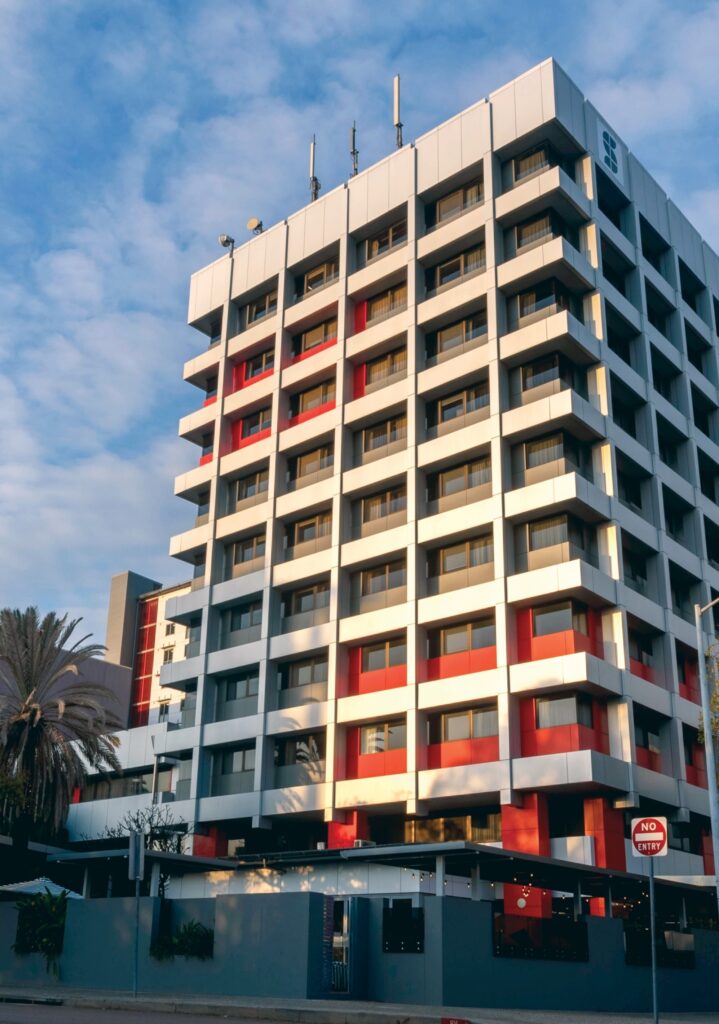
If we were all to sit down together again in 12 months’ time, what would you like to have achieved by then?
Scott Boyes: In 12 months’ time, we would like to have a national footprint. We are a proudly Australian hotel company and would like to feature across this great country in as many markets and communities as we can be in. We would like to be a very strong hotel management alternative for investment-grade assets and portfolios of hotels. We would also like to be seen as a world-class operator of hotels that people want to work for. In 12 months’ time, our hotels should be operating fundamentally differently to the way they are now, and that should drive better outcomes for owners, teams and guests. We will also be in our first wave of promotions for our executive teams and at a hotel level and driving positive outcomes for families. This is a responsibility we take very seriously and a major reason for Trilogy’s existence.
Grant Alchin: By the end of next year, we feel confident we will have demonstrated that the recommendations that we made to owners were on the money. And to Scott’s point, we’ll have demonstrated creating significant wealth for people, which is super important. By the end of next year, it will be night and day – market permitting there are no major shocks – which will be exciting.
Tony Ryan: We would like to double our number of hotels. And create real dynamism through our general managers who have come from larger organisations.
As you grow, how do you ensure that you don’t lose the qualities and values that has led to your success?
Grant Alchin: The intimacy is super critical. If you look at a portfolio, we generally have someone take the lead on that based on what we’re trying to affect within the portfolio. So, there’s a level of intimacy there between us and those people in the field. I’m generally the first port of call for something that is contained within P&L, operationally, whether it be teams or owners. Scott is constantly talking with owners, not just about performance, but to see how they are doing. I think that intimacy won’t go away. We will always structure it so that’s available. Obviously, technology and data are super important for us to keep an eye on things in real time. Then, it’s about the communication between us and any hotel leader.
Scott Boyes: We must grow in a very deliberate way to make sure that the quality and values we are very proud of remain intact. We’re absolutely focused on making sure that the things that make Trilogy Hotels a great partner now are not lost in growth. We’ve got an advantage because, unlike others, where the responsibility is so broad, we are just focused on hotel operations and performance. We are very mindful as a company that we are only as strong as the quality of our relationship we have with our owners, team and guests. It’s an ecosystem based on high levels of trust.
